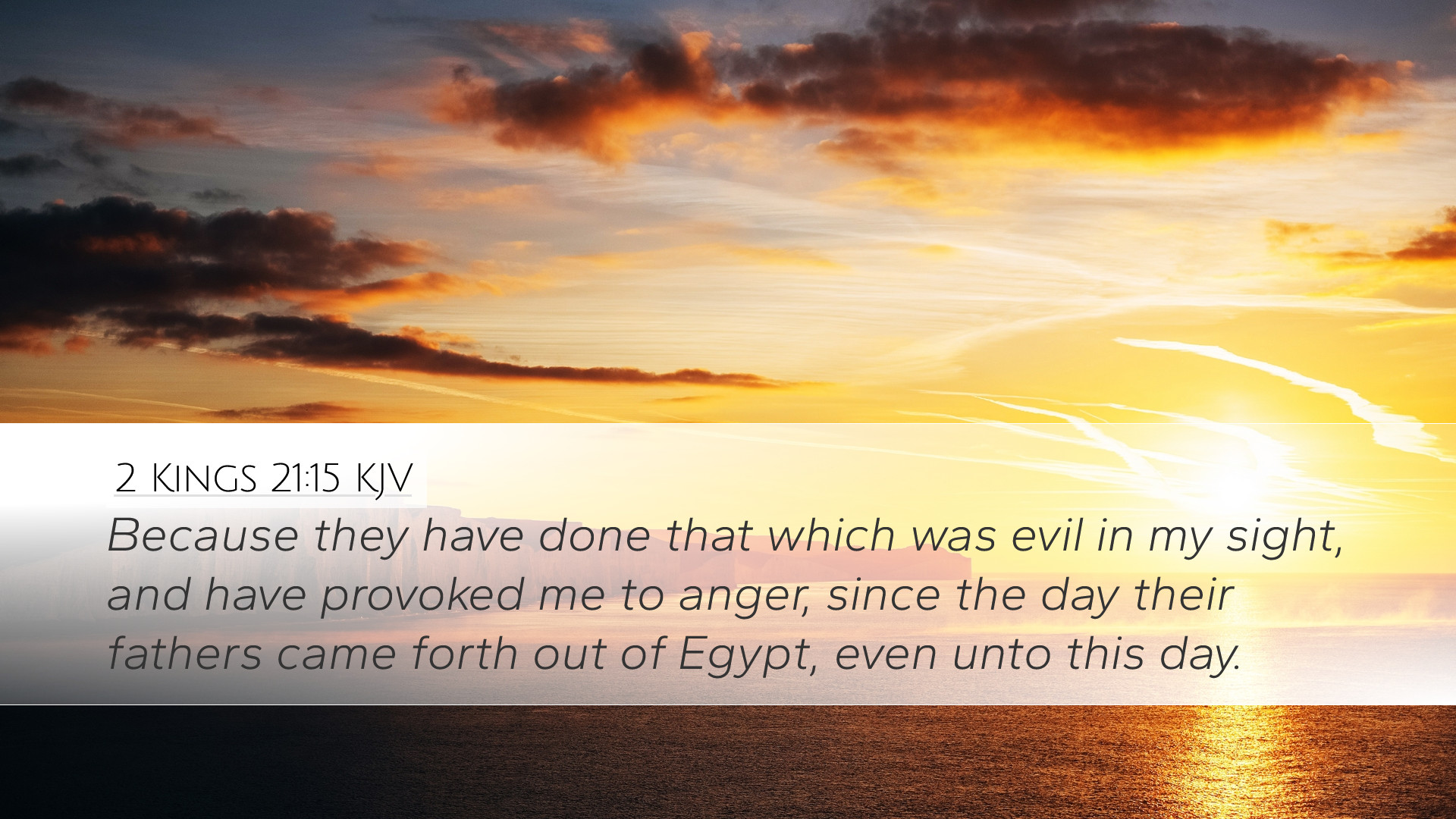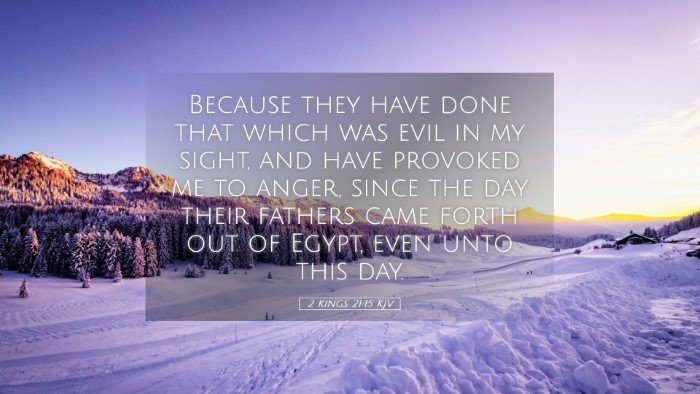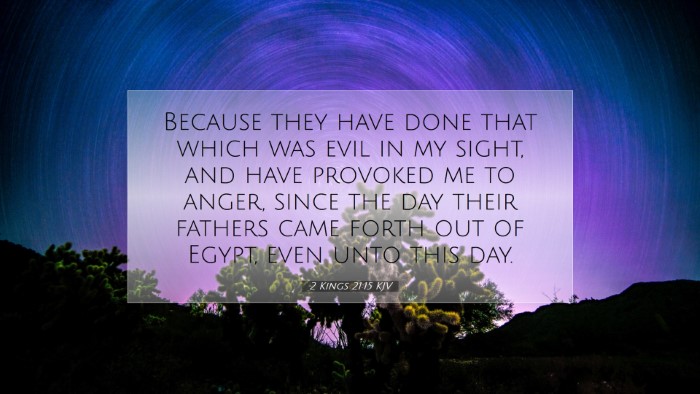Commentary on 2 Kings 21:15
Verse Context: 2 Kings 21:15 states, "Because they have done evil in my sight, and have provoked me to anger since the day their fathers came out of Egypt, even unto this day." This verse encapsulates the divine displeasure against the persistent wickedness of the people of Judah under the reign of Manasseh.
General Overview
This verse is found within the narrative concerning King Manasseh, who is often recognized as one of the most wicked kings of Judah. His reign marked a period of significant apostasy and corruption that led the nation further away from the covenantal relationship with God. The statement here serves as both a condemnation and a prophecy of the impending judgment upon Judah.
Theological Insights
The condemnation pronounced in 2 Kings 21:15 reflects a significant theme throughout the Hebrew Bible: the consequences of turning away from God’s commandments. The actions of Manasseh exemplified a profound rejection of the covenant, and the prophetic voice highlights God's patience juxtaposed with His justice.
1. The Nature of Divine Anger
Matthew Henry emphasizes that divine anger is not arbitrary; it is consistent with God's infinite holiness and righteousness. His wrath is provoked by the sins of His people, indicating a relational aspect to God's emotions. The long history of Israel’s rebellion serves as a pertinent reminder of the dangers of moral complacency.
2. Generational Consequences
Albert Barnes notes the phrase "since the day their fathers came out of Egypt" signifies that the iniquity was entrenched and passed down through generations. The faithlessness that began with the Exodus compounded over the years, leading to escalated disobedience. This highlights the critical role of legacy and the importance of spiritual vigilance in any generation.
3. Prophetic Warning
Adam Clarke points out that this declaration serves as a prophetic warning. The ongoing defiance against God’s commands invites judgment. The Israelites had experienced God's miracles and deliverance, yet they repeatedly turned back to idolatry and immorality, infuriating the Lord who had shown them mercy. Thus, the prophetic message is both a warning and a lament over what has transpired.
Historical Context
The reign of Manasseh is positioned within a tumultuous historical backdrop. Following the death of his father, Hezekiah — who was known for his reforms and faithfulness to God — Manasseh's turn to idolatry showcased a stark contrast. His rampant sins included infant sacrifice and divination, which were abominable practices contrary to the Israelite covenant.
- Evil Deeds: Manasseh introduced and tolerated practices that led Israel away from Yahweh.
- Impact on the Nation: The nation faced spiritual decay, moral decline, and an eventual loss of their sovereignty.
- Calls for Repentance: There were prophetic warnings during this time, calling for return to God.
Application for Today
The insights gleaned from 2 Kings 21:15 are not merely historical or theological but remain crucial for contemporary readers. In addressing pastors, students, theologians, and scholars, we can draw several pertinent applications:
1. Importance of Righteous Leadership
Just as Manasseh’s leadership had generational repercussions, church and community leaders today must recognize their influence on those they shepherd. Their actions should reflect a commitment to biblical righteousness to lead others toward godliness.
2. Awareness of Idolatry
Idolatry in various forms continues to pervade modern society. Whether it takes the shape of materialism, individualism, or other priorities that divert attention from God, believers are called to vigilance and repentance.
3. The Need for Repentance
Like the Israelites, the church today is encouraged to acknowledge its shortcomings and return to the steadfast ways of God. This process entails both individual and corporate accountability as believers seek to align their lives with the teachings of scripture.
Conclusion
2 Kings 21:15 is a poignant reminder of the grave consequences of turning away from God. The combination of insights from the commentaries reinforces the idea that history is not merely past but teaches present and future generations about the nature of God, the seriousness of sin, and the necessity of repentance. As those who engage with this text, may we learn from the past and strive towards a faithful walk with the Lord, always mindful of His covenant and grace.


